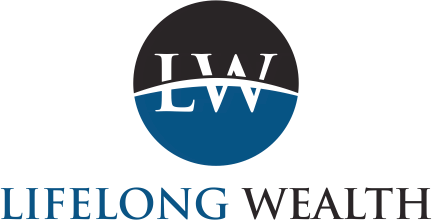What is Estate Planning & Why It Matters
No matter how daunting it seems, having a well mapped out, pre-planned estate plan at hand would make all the difference for you and your loved ones. A proper estate plan will give you the peace of mind that in the event of your death or your inability to handle your personal assets and affairs, your wishes are respected, and your loved ones are taken care of. Following are 10 tips from our very own financial advisers at Lifelong Wealth who will help you plan your very own checklist.
- Enduring power of attorney
Having an enduring power of attorney as your legal representative is essential for estate planning. EPoA will have the authority to appoint someone to manage your assets and financial matters on your behalf until your will is executed. You can also specify and make your EPoA have the authority to make financial decisions as well. Therefore, choose wisely when it comes to who you will have as your attorney, as they will become an essential part in your estate planning process.
- Take inventory on your assets & utilize estate planning services
Everything you own can be considered as an asset and taking stock on what you own should be a priority. May it be major assets, cash assets, income generating assets, valuable assets, having everything in order with the assistance of your financial adviser and attorney, should be the next step in having a proper estate plan. Some examples of these assets are as follows:
- Major assets: Real estate, vehicles, artwork, jewelry, digital assets, and other physical assets
- Cash assets: All financial and investment accounts
- Income assets: Businesses, rental properties, intellectual properties
- Valuable assets: Assets which have financial values
If you are a person with complex assets, it is essential for your attorney and financial adviser to build a comprehensive list of all assets, liabilities and debts which will ensure them to tailor their estate planning services to your financial needs.
- Paying your debts
Before drafting your will, it would be wise to consult your financial adviser with regards to your outstanding debts. Managing debts in an estate can be a complex procedure for your beneficiaries later, so it is essential for you to pay off your debts and settle your finances beforehand. Following are some suggestions to prioritize paying off your debts.
- Create a budget
- Assess which debts to pay off in order
- Cutting extra expenses
- Seek professional help
- Avert adding more debt
Debt repayment can sometimes be a long journey, so stay motivated by keeping track of your progress and think about the end goal of financial freedom, you and your beneficiaries will have in the end.
- Wills and Estate Planning- Appoint an executor
After drafting your will, it is essential for you to have an executor who will be there to administrate the estate planning in due course. With the assistance of your attorney and their legal expertise, you can select someone reliable and qualified to execute the wishes of your will. The executor for the estate plan will have the legal authority to act in the best interest of the estate, as well as its beneficiaries.
- Review your retirement accounts and policies
Next on the checklist would be to review your retirement accounts. The current beneficiaries for these retirement accounts and policies will be the people which will receive their contents upon your death. The fact that your will says otherwise, would not take precedence because the entirety of your retirement accounts and policies will pass on to the beneficiary, designated at the beginning.
Therefore, with the assistance of your financial advisors and attorney, please review your accounts and policies regularly and make amendments in the beneficiary section, if necessary.
- Establish Guardianship
Estate planning is essential for individuals and families of every financial background as it is not just for the wealthy. Therefore, establishing proper guardianship will make a massive difference in the event of your sudden death or incapacitation. If you are,
- Parents with minor children or,
- Have family members with special needs or,
- Have adult dependents,
establishing guardianship should become a priority. Pro tip is to always have a backup guardian in line as well, in case your first choice cannot care for them.
- Appointing beneficiaries
This will be the person or people you will name as the receivers of some or all your assets upon death or incapacitation. You can name more than one beneficiary (either an individual, a group, a trustee for your trust, a charity, or minors).
To avoid probate, which is a legal process which can be costly, slow, and public, having beneficiaries in place for your will and trusts during estate planning procedure is the ideal solution.
- Plan for advance care
As we mentioned at the beginning, incapacitation to manage your own assets could become a probability for some. Even if it is not the case, it would be efficient to have advance care planned for yourself, which will ensure that your medical care will be maintained accordingly in the future.
- Safekeep your estate planning documents
It is of utmost importance to safeguard your estate planning documents. You must keep them in a safe and secure location and inform trusted individuals. You can also use a safety deposit box to keep a copy of these documents too. Your attorney will retain copies of the documents as well, so let them be in contact with the executor of the will, in case of emergency.
- Regularly review your documents
Periodically review all the documents of your estate plan as there might be changes in circumstances (ex: you might want to change your beneficiaries). Therefore, it is important for you to review your documents on a regular basis and make sure all document copies are up to date.
So, book an appointment with one of our experienced financial advisers at our Bald Hills location or call us on 07 3188 5140 and we can assist you through this lengthy process.



